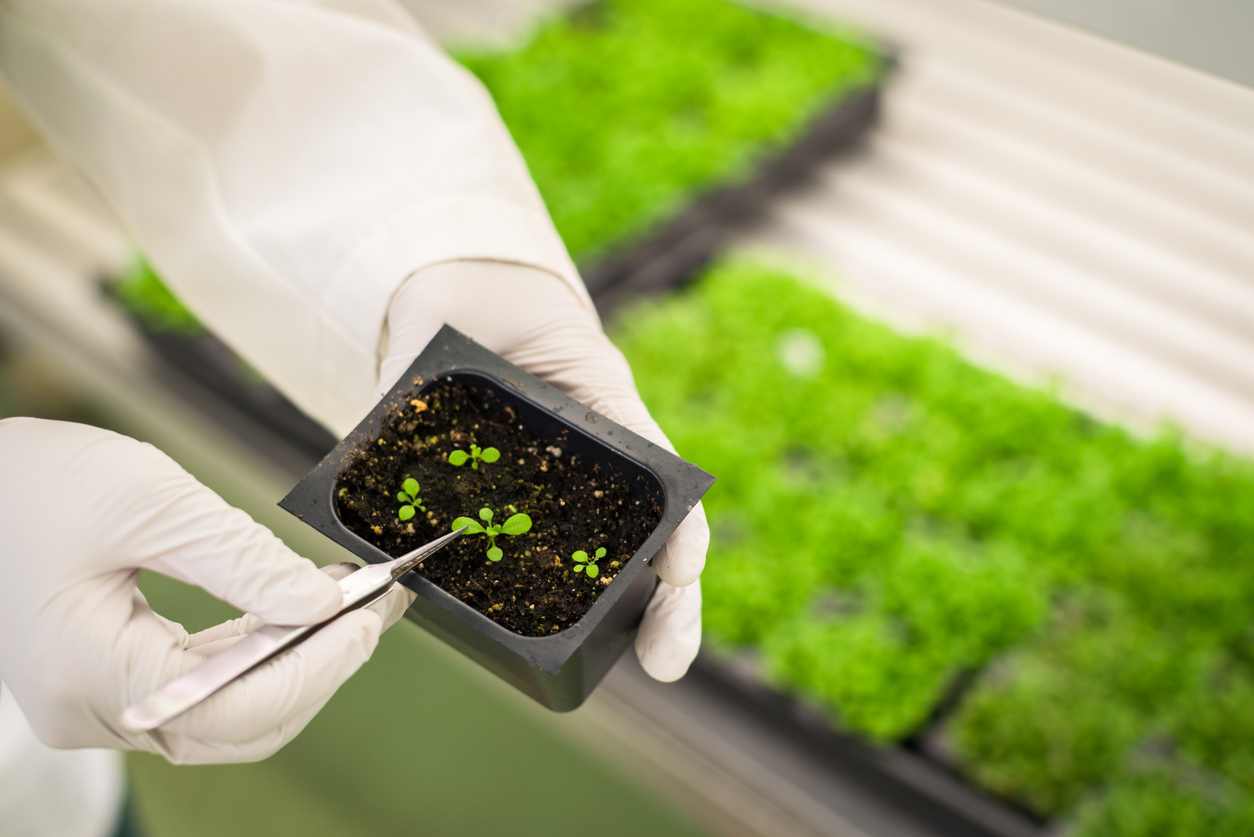
Researchers Boost Zinc Uptake in Arabidopsis to Help Alleviate Malnutrition
March 10, 2021| |
An international group of experts led by the University of Copenhagen discovered how to regulate zinc in plants. This breakthrough could help pave the way to alleviating malnutrition worldwide.
Zinc is one of the essential micronutrients for plants and animals because of its vital functions in many proteins. Zinc deficiency affects approximately 2 billion people worldwide, mostly those who are on plant-based diets relying on crops from soils lacking in zinc. Thus, the researchers searched for ways to increase zinc absorption of plants using the model plant, thale cress (Arabidopsis).
They identified two proteins (bZIP19 and bZIP23) from thale cress that work as zinc sensors and analyzed the plant's ability to absorb and transport zinc throughout the plant tissues. Then they modified the properties of the sensors which served as molecular switches, controlling a tightly connected network of zinc transporters. With the small change in the properties, the plant behaves as if it is in a constant state of zinc deficiency, and thus the zinc uptake system remains turned on. This led them to successfully modifying thale cress to absorb more zinc by up to 50 percent compared to a normal plant.
The team is currently reproducing the results in bean, rice, and tomato plants. They also plan to apply CRISPR to replicate the positive results.
Know more results from Nature.
| |
You might also like:
- GE Rice High in Iron and Zinc Developed
- First Zinc-enriched Maize Released in Colombia to Combat Malnutrition
- MxIRT1 Overexpression Increases Iron and Zinc in Rice
Biotech Updates is a weekly newsletter of ISAAA, a not-for-profit organization. It is distributed for free to over 22,000 subscribers worldwide to inform them about the key developments in biosciences, especially in biotechnology. Your support will help us in our mission to feed the world with knowledge. You can help by donating as little as $10.
-
See more articles:
-
News from Around the World
- Endangered Plant Species Becomes Model for Genome Sequencing
- Canola Pan-Genome Completed; Reveals Broad Genetic Diversity of the Crop
- Book Explores Global Attitudes to GM Crops and Unravels Reasons behind Negative Sentiments
- Experts Encourage to Speed Up Biotech Adoption in Pakistan with the Help of Scicom
- China's Five-Year Plan Prioritizes Modern Breeding Techniques for Agriculture
- Researchers Boost Zinc Uptake in Arabidopsis to Help Alleviate Malnutrition
- Automated Genomics Screening to Hasten Cure to Crop Diseases
- Turkey Approves Five Biotech Traits
-
Research Highlights
- Indonesian Scientists Identify Novel Gene To Develop Aluminum-Tolerant Rice
-
Plant
- Gene Editing Technology Used to Modify Traits in Corn
- New ISAAA Infographic Illustrates TALENs
-
Health
- Nebulized Treatment Against Flu, SARS-CoV-2 Developed Using CRISPR
-
Read the latest: - Biotech Updates (February 4, 2026)
- Gene Editing Supplement (January 28, 2026)
- Gene Drive Supplement (February 22, 2023)
-
Subscribe to BU: - Share
- Tweet

